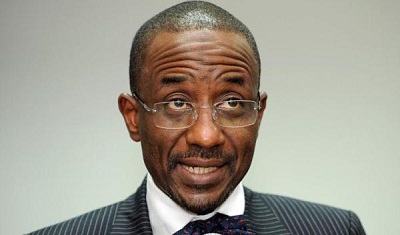Hot Stories
Recent Stories
Emir of Kano Criticises Buhari's Financial Policy
Posted by George on Mon 08th Feb, 2016 - tori.ngThe Emir of Kano has accused Buhari's financial policies of encouraging corruption in the country.

Muhammad Sanusi II
Muhammad Sanusi II, the emir of Kano and the immediate past governor of the Central Bank (CBN), says President Muhammadu Buhari’s endorsement of the CBN foreign exchange policy encourages corruption.
Lauding Buhari’s removal of “wasteful and corrupt fuel subsidies”, Sanusi said the current forex policy endorsed by the president encourages similar rent seeking and corruption which trailed the subsidy regime.
“He (Buhari) has put an end to the [crude] swap regime which is also one side of rent-seeking and corruption . . . he has made the NNPC start producing accounts, so there is greater transparency,” Sanusi told Financial Times.
“These measures are good for the economy and display strong political will to change the system. But getting monetary and fiscal policies right will be crucial for broader progress in structural reform.”
Financial Times quoted the emir as saying the president’s anti-corruption stance was “totally inconsistent” with the foreign exchange regime he supported, adding that it “encourages corruption and rent-seeking similar to the fuel subsidy regime”.
The emir, who was CBN governor from 2009 to 2014, expressed his displeasure with the monetary policy regime which he said has “very obvious drawbacks that far outweigh its dubious benefits”.
“Unfortunately, because the exchange rate is right out there in front now, monetary policy is being seen as the barometer for broader economic thinking,” he said.
“It is sad that on this one policy you get it so wrong that you risk taking away attention from everything else you are doing.”
Sanusi who resisted devaluation during his own tenure as CBN governor said he did so because he “had reserves of over $40bn and an oil price at over $110,” admitting that there are no easy ways out of the current situation and “devaluation is a bitter pill”.
The country’s economic woes were now being exacerbated, with the currency peg and restrictions in the foreign exchange market creating “a lot of speculative and precautionary demand,” Sanusi argued.
Lauding Buhari’s removal of “wasteful and corrupt fuel subsidies”, Sanusi said the current forex policy endorsed by the president encourages similar rent seeking and corruption which trailed the subsidy regime.
“He (Buhari) has put an end to the [crude] swap regime which is also one side of rent-seeking and corruption . . . he has made the NNPC start producing accounts, so there is greater transparency,” Sanusi told Financial Times.
“These measures are good for the economy and display strong political will to change the system. But getting monetary and fiscal policies right will be crucial for broader progress in structural reform.”
Financial Times quoted the emir as saying the president’s anti-corruption stance was “totally inconsistent” with the foreign exchange regime he supported, adding that it “encourages corruption and rent-seeking similar to the fuel subsidy regime”.
The emir, who was CBN governor from 2009 to 2014, expressed his displeasure with the monetary policy regime which he said has “very obvious drawbacks that far outweigh its dubious benefits”.
“Unfortunately, because the exchange rate is right out there in front now, monetary policy is being seen as the barometer for broader economic thinking,” he said.
“It is sad that on this one policy you get it so wrong that you risk taking away attention from everything else you are doing.”
Sanusi who resisted devaluation during his own tenure as CBN governor said he did so because he “had reserves of over $40bn and an oil price at over $110,” admitting that there are no easy ways out of the current situation and “devaluation is a bitter pill”.
The country’s economic woes were now being exacerbated, with the currency peg and restrictions in the foreign exchange market creating “a lot of speculative and precautionary demand,” Sanusi argued.
Top Stories
Stories from this Category
Recent Stories













































